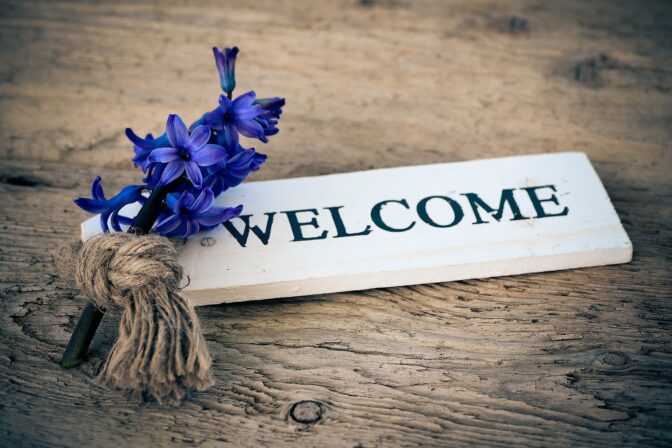When I was eleven years old, my mom and I went to the United States to visit her aunt and uncle in Washington, DC. It was my first time on an airplane, and my first time using English for real. I had been learning English for over a year, but had not had the opportunity for an actual conversation.
We met our cousins, and some brought gifts for me. When I thanked them, they said “You’re welcome.” I felt all warm and fuzzy. How nice that these Americans were welcoming me to their country! And not just my family, it seemed everyone was doing their best to make me feel at home. The clerk at the supermarket, the woman selling tickets at the museum, even the waiter at McDonalds; they all told me I was welcome. What a friendly country!
I was translating their words literally. The Dutch version of welcome, “welkom,” is only used in the meaning of welcoming someone to a place. The fact that the phrase “you’re welcome” was a boilerplate reply to a thank-you totally went by me. I smile when I look back how that simple misunderstanding led to me appreciate the people’s responses more.
This got me thinking. When we’re reading old records, we’re reading words from another time, another place, another culture, another language perhaps. We may understand the words, but do we understand their intent? Do we understand how these words were used, what situation they were used in, what they imply about social status, about relationships, about norms? How many misunderstandings lead us to misinterpret our ancestors, to see them in a more positive or perhaps more negative light than they deserve?

Credits: Pezibear, via Pixabay (free for commercial use)


Never thought of that. Very interesting. Thanks.
You’re welcome 😄
Yvette, you have made such an interesting point. Thank you for this post.
You’re welcome 😄
I have noticed that some of my Dutch cousins speaking English use a few words in the “wrong” (by English use) way. One that comes to mind is “trespass”. My cousin’s husband I were driving over the bridge into Rotterdam after a day visiting ancestral sites to the south. He remarked something about trespassing the bridge. I had to think of the word trespass in French (tres-pass) to realize he just meant that we were going over the bridge and not breaking some prohibition against property rights violations.
I was listening to a presentation today in which I was introduced to the new-to-me word of “presentism.” It’s similar to your thoughts with in this post. Presentism is assigning modern values, beliefs, or awarenesses to times of the past. I believe your idea and this are both things we family historians need to guard against or we come away with skewed impressions of our ancestors and their times.
Thanks for bringing this to mind.